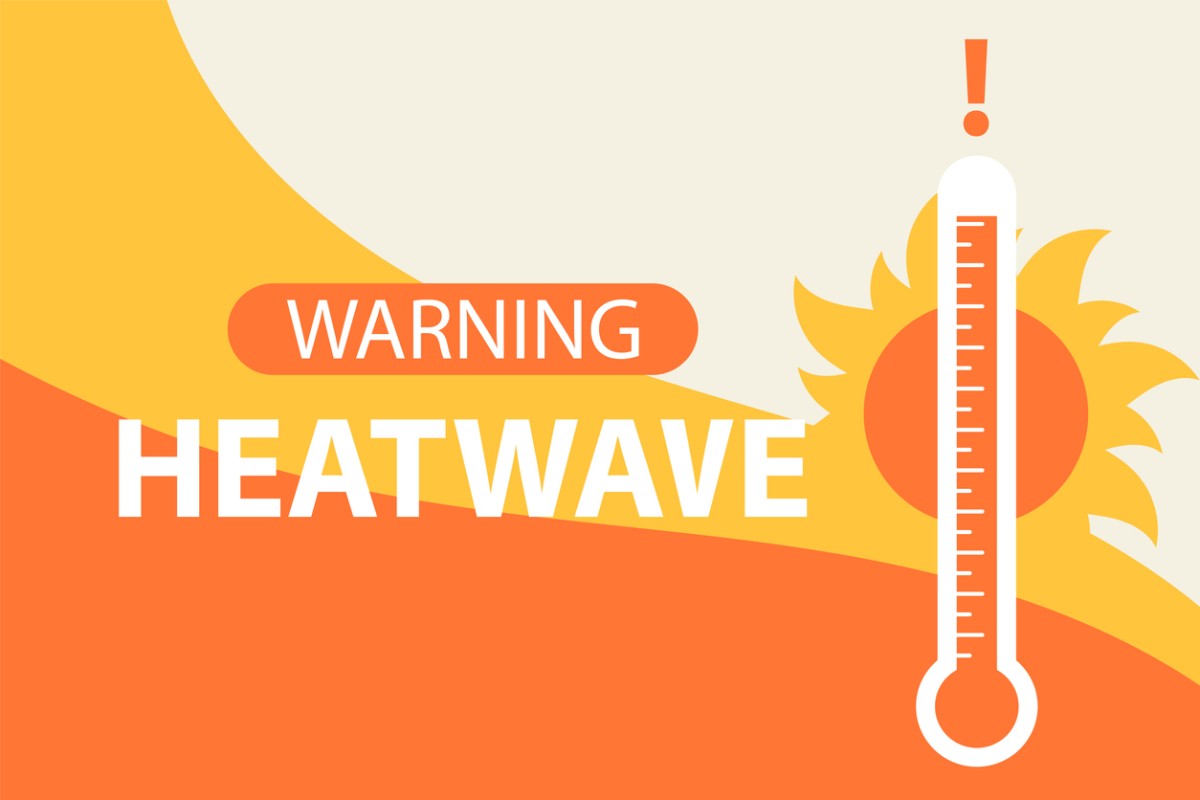Stay Safe This Summer: Tips to Beat the Heat, Enjoy the Water and Celebrate Responsibly
June 23, 2025

Summer is in full swing! With the longer days and warmer temperatures, now is the perfect time to enjoy all the outdoor activities you love—backyard barbecues, beach days, family hikes, lake time, fireworks celebrations and more. But as you make your summer plans, it’s essential to stay alert and take precautions to protect your health and safety—and that of your loved ones.
Top Summer Hazards: Heat and Water-Related Injuries
Extreme heat and drowning remain two of the most serious summer threats. The good news? Both are highly preventable with a few simple steps.
Heat Safety: Be Heat Smart
Heat is the deadliest weather-related hazard in the U.S. each year. Children, older adults and individuals with certain medical conditions are at the greatest risk for heat-related illnesses.
Here are the three most common heat-related conditions:
- Heat cramps: Painful muscle cramps in the arms, legs or abdomen—usually the first sign your body is struggling.
- Heat exhaustion: Symptoms include headache, nausea, dizziness, weakness, heavy sweating, irritability and pale or flushed skin. Without treatment, this can escalate to heat stroke.
- Heat stroke: A medical emergency characterized by confusion, fainting, slurred speech and high body temperature. It can cause organ damage or death and requires immediate care—call 911 right away.
Tips to stay cool and safe:
- Monitor temperature and humidity levels daily.
- Drink plenty of water—even if you don’t feel thirsty.
- Take breaks in the shade or air conditioning.
- Wear lightweight, light-colored and loose-fitting clothes.
- Avoid alcohol, which dehydrates the body and impairs temperature regulation.
- Apply broad-spectrum sunscreen (SPF 15 or higher) at least 30 minutes before sun exposure and reapply regularly—even if you're sitting in the shade, as sun reflecting off water can still cause sunburn.
- NEVER leave children, pets or anyone unattended in vehicles, even with the windows cracked.
Water Safety: Make Safe Waves
Whether you’re at the pool, beach or on the boat, drowning can happen in seconds—and it’s often silent. In the U.S., an average of 11 people die from drowning every day, and more than 20 experience non-fatal drowning incidents.
Follow these water safety tips:
- Swim only in designated areas supervised by lifeguards.
- Never swim alone.
- Always supervise children closely around water—no distractions.
- Use U.S. Coast Guard-approved life jackets for young children and inexperienced swimmers.
- Choose brightly colored swimsuits for kids so they are easily visible.
- Be alert around lakes, rivers and Lake Superior, where rip currents, rocks and limited visibility increase risk.
- Always wear a life jacket while boating. Make sure every person onboard has one.
- Avoid alcohol when swimming, supervising or boating.
- Keep a water safety kit nearby that includes life-saving devices, a phone and a first aid kit.
- Don’t hold your breath underwater for extended periods—this can cause shallow water blackout.
Fireworks Safety: Celebrate Smart
Fireworks are a beloved summer tradition—but they can also cause burns, eye injuries or even fires if handled improperly.
If fireworks are legal in your area and you choose to use them, keep these precautions in mind:
- Never allow young children to handle fireworks.
- Always have adult supervision.
- Keep a hose or bucket of water nearby.
- Light fireworks one at a time, then move away quickly.
- Never point or throw fireworks at anyone.
- Avoid fireworks packaged in brown paper—these are typically for professional displays.
- Soak used fireworks in water before disposal.
General Outdoor Safety: Don’t Let Injuries Disrupt Your Summer
- Use helmets when biking, skateboarding or scootering to prevent head injuries.
- Apply insect repellent to protect against mosquito and tick bites.
- Follow food safety rules at cookouts—keep raw and cooked foods separate and don’t leave perishables out longer than two hours.
- Supervise children at playgrounds and around bonfires.
- Be prepared—carry a first aid kit on all adventures.
When Emergencies Strike, Minutes Matter
Despite your best precautions, accidents can still happen. If you or someone you’re with shows signs of heat stroke, drowning or another medical emergency—call 911 immediately.
UP Health System is here when you need us. Learn more about our emergency care services at UPHealthSystem.com/Emergency.
Wishing you a safe, fun, and healthy summer!
